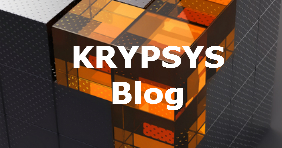Researchers at Kaspersky Lab have uncovered a new malware sample designed to target Linux operating systems. The malware has been used by the notorious advanced persistent threat (APT) group called “Turla” (also known as Snake and Uroburos). Kaspersky Lab researchers found that the nasty Linux Trojan had been used by cybercriminals in state-sponsored attacks in order to steal personal, confidential information from government institutions, and military and pharmaceutical companies around the world.
The news was hardly unexpected as it is known that the Turla cyber espionage toolkit has been in development for almost ten years, and has already been utilised in numerous operations aimed at organisations across the world. One of the more recent high-profile malware campaigns, dubbed Epic Turla, targeted government organisations, intelligence agencies, educational institutions, embassies, military groups, and research and pharmaceutical companies in over 45 countries.
However what makes this new discovery important is the growing scope of the threat. Until recently, researchers had only seen Turla components designed to target Windows operating systems in the wild. Now Kaspersky Lab has reported uncovering two samples that are also targeting Linux operating systems. Researchers believe that one of the samples, detected as HEUR:Backdoor.Linux.Turla.gen, could have been active for years on a target’s website, but as yet they have been unable to produce any evidence that would back up that contention.
Explaining the latest findings, Kaspersky Lab’s Costin Raiu and Kurt Baumgartner said in a blog post:
“The Linux Turla module is a C/C++ executable statically linked against multiple libraries, greatly increasing its file size. It was stripped of symbol information, more likely intended to increase analysis effort than to decrease file size. Its functionality includes hidden network communications, arbitrary remote command execution, and remote management. Much of its code is based on public sources.”
What makes the latest Trojan so pernicious is that unlike other discovered back door viruses, the modules of the Linux-based Turla malware is written in C and C++ languages and contains code from previously written libraries. The malware uses hidden network communication, stripped of symbol information, which makes it hard for researchers to reverse engineer or analyse. As a result, the Linux-based Turla Trojan may have capabilities that have not yet been uncovered completely, as Baumgartner said the Linux component is a mystery even after its discovery, adding it can’t be detected using the common Netstat command.
“This Turla cd00r-based malware maintains stealth without requiring elevated privileges while running arbitrary remote commands. It uses techniques that don’t require root access, which allows it to be more freely run on more victim hosts. Even if a regular user with limited privileges launches it, it can continue to intercept incoming packets and run incoming commands on the system,” Baumgartner added.
Another Linux Turla sample discovered by the security firm recently is believed to be part of a different generation. The threat was detected by Kaspersky’s products due to similarities with the other Linux Turla module. Earlier this year, researchers detailed the connection between Turla and Agent.BTZ, a piece of malware that became notorious in 2008 after it was used in a cyber-attack targeting the networks of the United States military. In November, German Security Company, G Data, published a report on a new remote access Trojan, ComRAT, which appears to be a successor of Agent.BTZ. Researchers have pointed out that the existence and sophistication of ComRAT demonstrate that the Turla campaign is still active.
If you are concerned about this latest malware vulnerability or any of the other escalating security challenges facing businesses today and would like to take precautions, then why not speak to Krypsys? Krypsys’ services are focused on helping you assess your security posture against current and evolving security threats and educating you on the risks to which you are exposed. We have a wealth of experience in security projects in both the public and private sectors and have worked with organisations to protect high value information assets such as trading platforms, e-commerce systems, data-centres and cloud services. We also work with leading IT security vendors and specialist consultancies to close the gaps in your own IT security strategy and to assist in streamlining and prioritising your risk management spending.
Whether you’re looking for help with penetration testing and security reviews, or are looking for advice on security compliance and web security solutions, Krypsys can help you. For more information on web security solutions, please contact Krypsys on 01273 044072 or [email protected].

